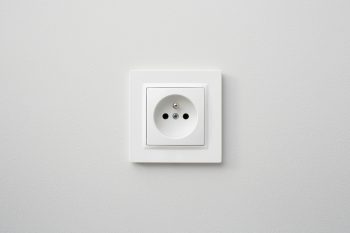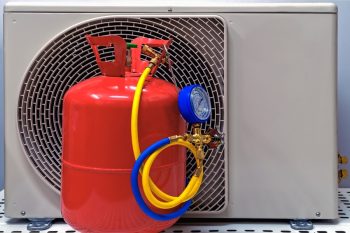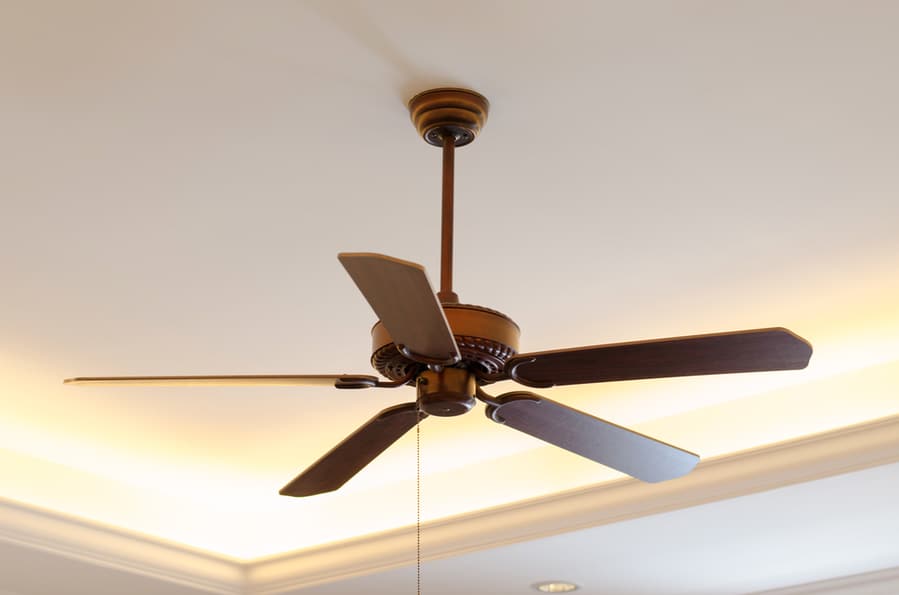
Did you know your ceiling fan does not cool your house as most people think? However, it helps in ensuring no air stagnates in your house.
It helps to balance the cold and hot air distribution resulting in a breezy sensation throughout the house.
Knowing this can be tempting, especially during the summer season, you should ensure your house feels comfortable to stay.
However, it can be risky to leave your ceiling fan running continuously.
Your ceiling fan and brand determine when to leave it to run continuously without risking your house.
You need to consult your manufacturer on the duration you can leave your ceiling fan open because different manufacturers use different approaches when making ceiling fans.
There is no risk of leaving your ceiling fan running continuously for a long time. The only problem is that the motor dissipates heat into the atmosphere making the room feel hot and uncomfortable.
However, several factors determine the duration you can leave your ceiling fan running continuously. Such include:
- The quality of your ceiling fan
- Its speed
- Age of the fan
- The type of the ceiling fan
There are also advantages of leaving your ceiling fan running continuously, such as improved air circulation, better temperature, and white noise that aids in sleeping and saves you money.
Leaving your ceiling fan running for a long time can cause it to overheat. Read through this article to learn how to protect your appliance from overheating.
Most manufacturers recommend you run a ceiling fan for eight consecutive hours. Therefore, you should not worry when you forget to turn it off in the morning as you leave for your job.
Effects of Leaving Ceiling Fan Running Continuously
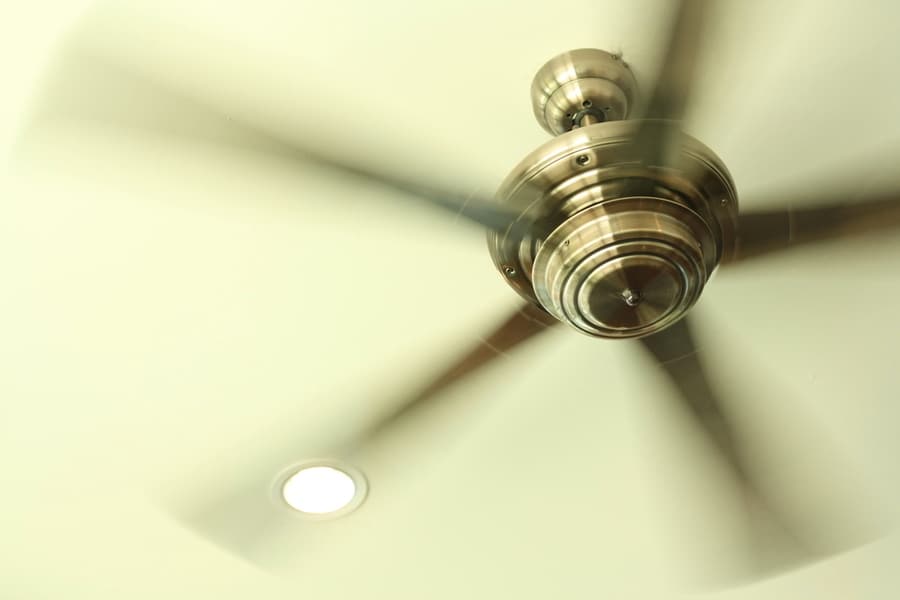
Leaving your ceiling fan running continuously has very little or no effects. If you leave your ceiling fan running for a long duration, it gets hot due to its motor that produces a lot of heat while operating.
The motor cannot be 100 percent efficient while using electric energy to facilitate the ceiling fan’s operation, leading to some losses in the form of heat.
This heat causes the rooms in the house to have higher temperatures because of the dissipated heat.
Many people feel it is wrong to leave the ceiling fan running continuously because of this and think it can lead to fire outbreaks.
However, that is not true because the heat dissolves into the atmosphere, and at no point the motor has higher temperatures exceeding the safe limit.
An exception is when your ceiling fan is very old and you have not maintained it well, causing the heat to go higher than the safe limit. As a result, the motor gets burnt due to higher dust on the fan.
If your ceiling fan is not lubricated, ensure nothing hangs on it because it can temper with its normal functionality.
Most ceiling fans are designed to last for 10 years. Leaving it running continuously for a long shortens its lifespan.
As a result, the ceiling fan can malfunction, or its parts, such as the motor or the blades, get damaged, forcing you to replace it before 10 years are over.
4 Ways of Preventing Your Ceiling Fan From Overheating
The following tips help you keep your ceiling fan running smoothing for a long time without overheating:
1. Remove Flammable Objects Near the Appliance
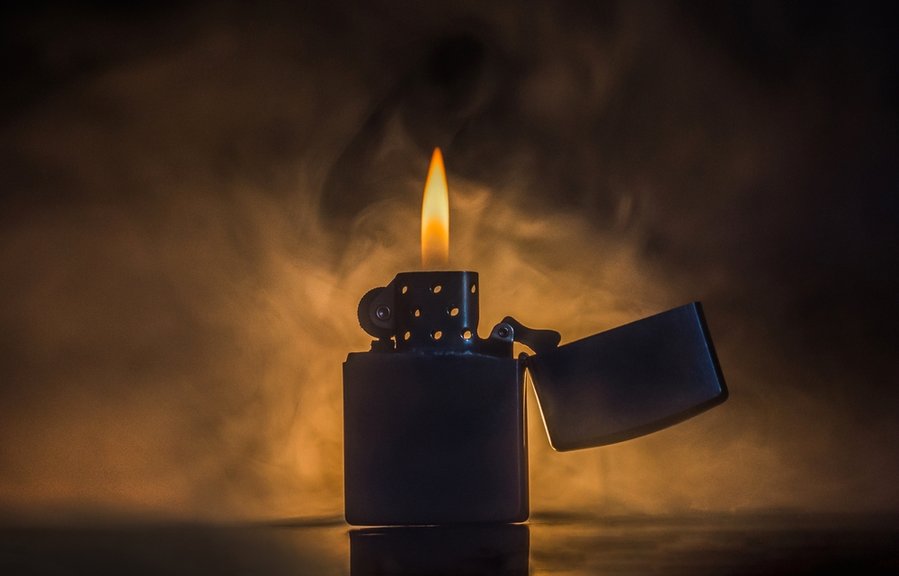
If you want to run your ceiling fan for a long time without overheating, ensure no objects are hanging on it, regardless of the event at your home.
No beads or streamers should be on the fan’s blades because they can lead to a fire. Before you turn your ceiling fan on, make it a norm to remove such objects.
2. Assess the Installation
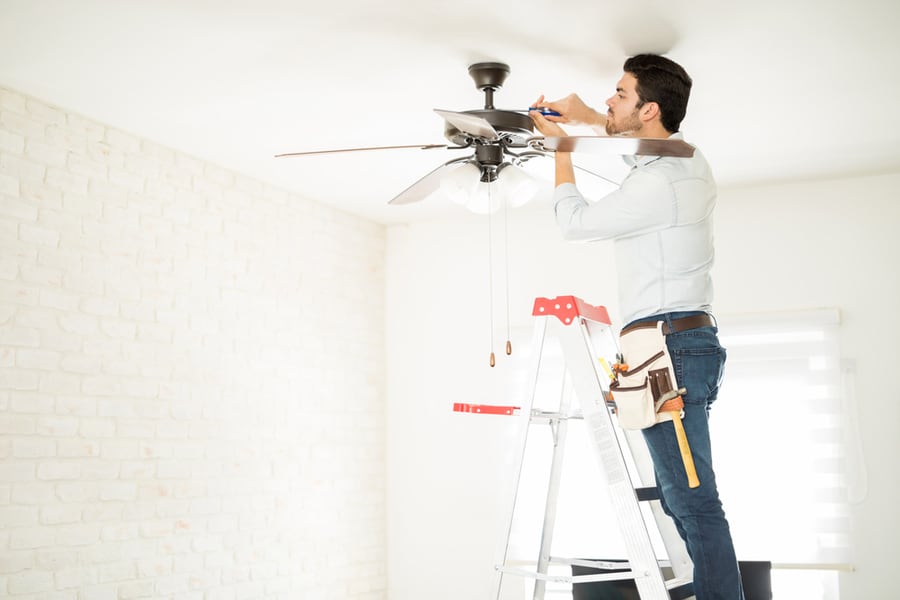
If your ceiling fan gets too hot after a long operation, check if it was properly installed.
If you hear improper rattling or connection sounds, it indicates the ceiling fan was not properly installed. You can call the technician for assistance.
3. Removing Accumulated Dust
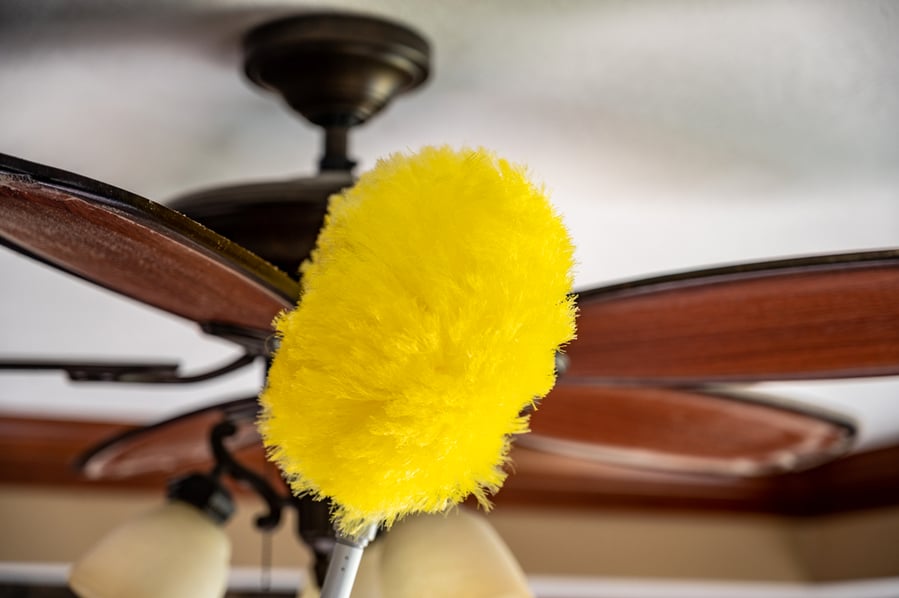
Cleaning your ceiling regularly prevents it from accumulating dirt and dust and damaging your gadget.
Dust and dust are flammable; these materials can catch fire if your ceiling fan overheats. Cleaning your ceiling fan keeps it clean and protects it against catching fire.
4. Conduct a Regular Maintenance
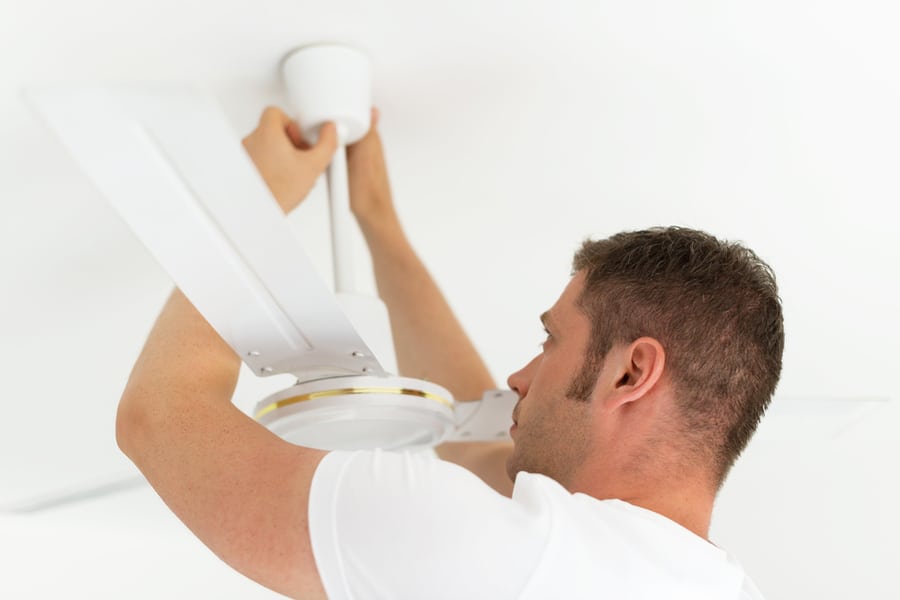
Doing regular maintenance helps you to keep your ceiling fan safe for use. Clean the blades regularly to prevent dust accumulation and lubricate the moving parts three times a year to keep the device safe.
When you do this, your device can operate for several hours effectively without overheating.
However, following your manufacturer’s recommendations is vital because specialized maintenance helps the appliance work properly.
Benefits of Leaving Ceiling Fan Overnight
1. Saves You Money

Cooling your home during the summer can be costly.
Still, a ceiling fan can help you feel comfortable, especially if it was installed by a professional and at an effective height and place to balance the hot and the cold air that allows you to stay in the house for a long time.
2. Improved Air Circulation

A ceiling fan expels stale odor that accumulates at night in your room, creating a healthy and comfortable environment for you to stay and sleep.
3. White Noise
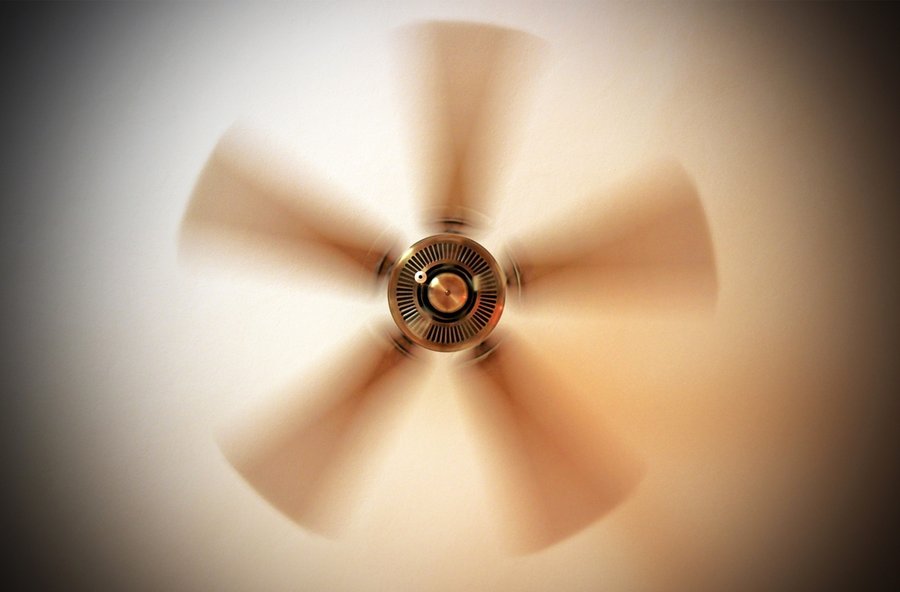
There is a consistent noise a ceiling fan makes as it moves the air. A ceiling fan produces a noise similar to a neighbor’s car or dog that helps you to sleep.
However, you can get a real device that aids sleeping patterns, even with a ceiling fan.
4. Temperature
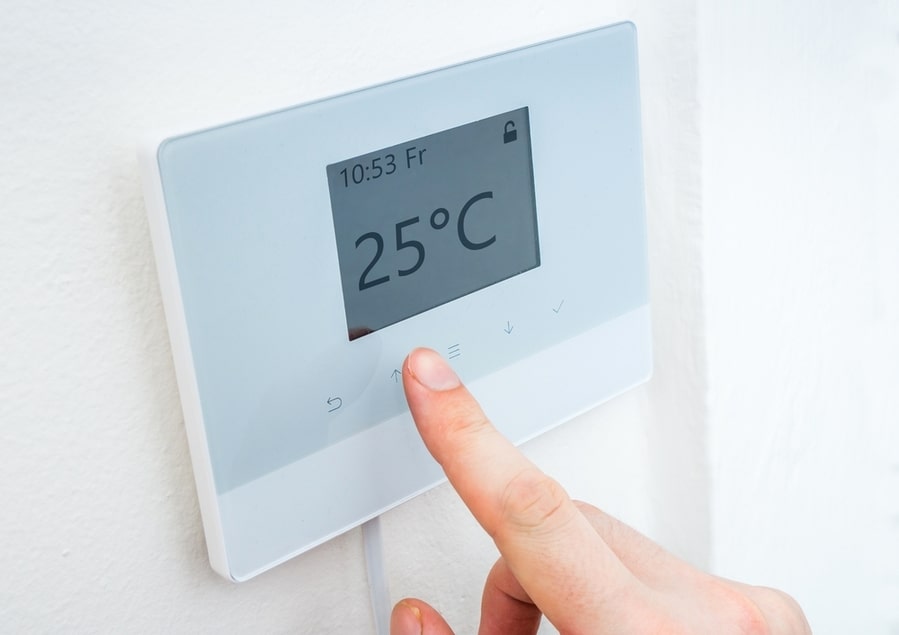
You need to install your ceiling fan based on the season you are in. Direct airflow upwards in cooler months to allow warm and cool air to mix.
In hot months, the airflow should be directed downward to produce a breeze that pushes away the warm air. When the air is too hot, your skin sweats, creating a cooling effect.
Factors Affecting the Running Time of Your Ceiling Fan
1. The Size of the Motor
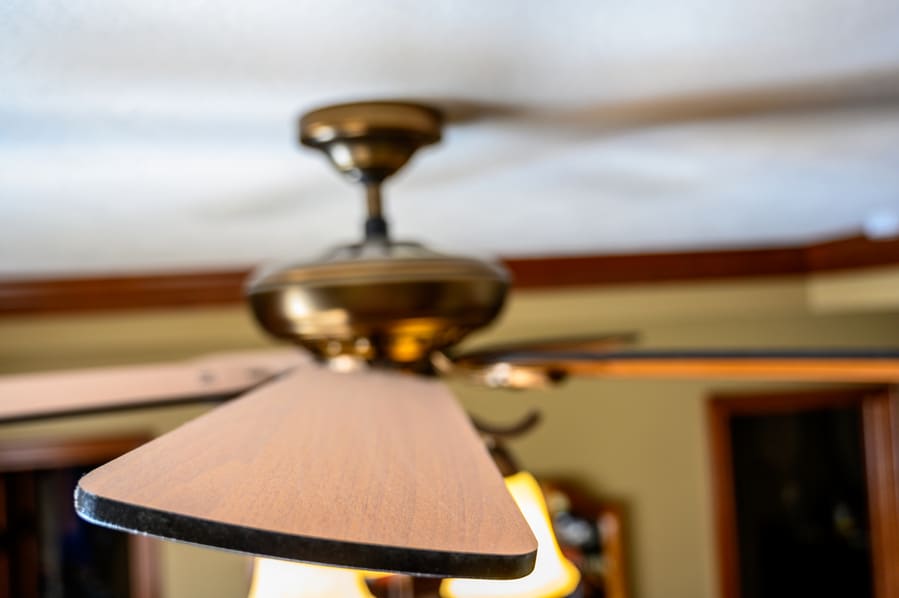
Small motors strain to spin the ceiling fans. They have a slower speed, and you must set the ceiling fan at higher heights to achieve the desired air circulation.
Bigger motors are more robust and can easily convert electricity into work. Therefore, you do not have to set it too high because it can create a cool environment at a lower height.
2. The Age of Your Fan
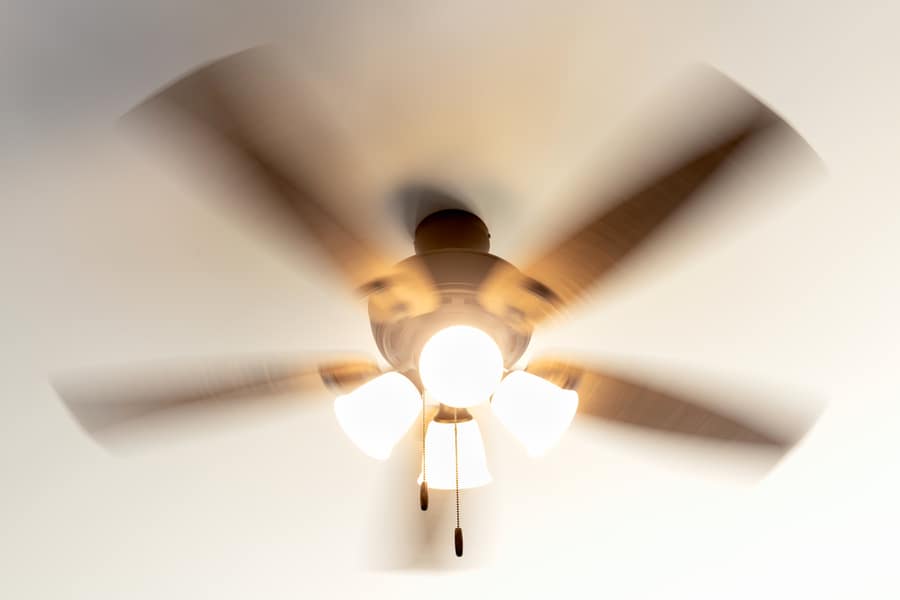
Regardless of the quality of your fan, the motor wears out over time and becomes more prone to overheating. Therefore, the age of the fan determines the duration you can leave it running.
An old ceiling fan can run continuously faster than a new one.
3. Its Speed
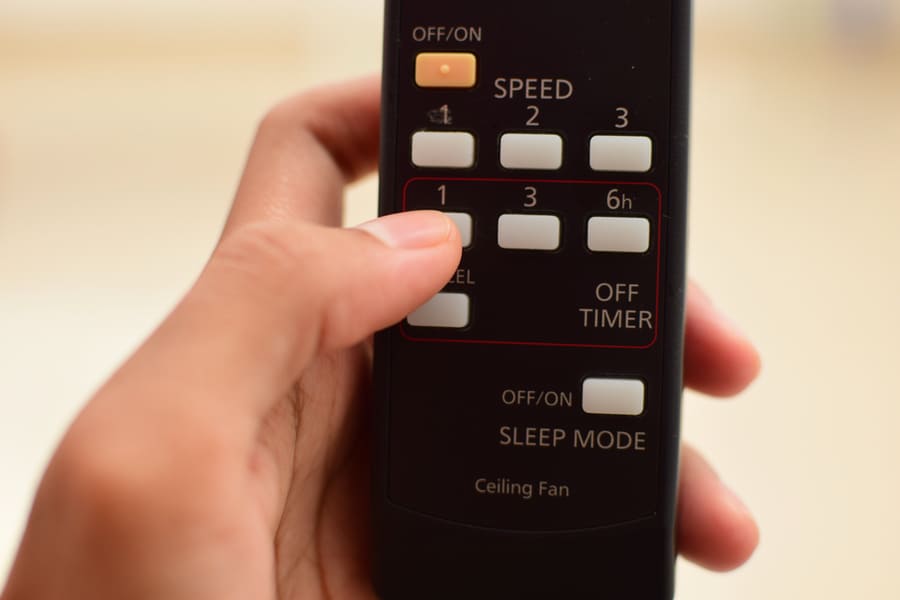
The speed you set your ceiling fan to run determines the amount of electricity it uses. If you set it too high, the motor works extra hard and produces much heat.
Setting a medium speed allows your appliance to run longer because the motor does not strain to maintain the speed.
If you leave your ceiling fan to run at a higher speed for a long time, the motor consumes more power to maintain the fan’s speed, causing it to overheat.
4. Quality of Your Fan
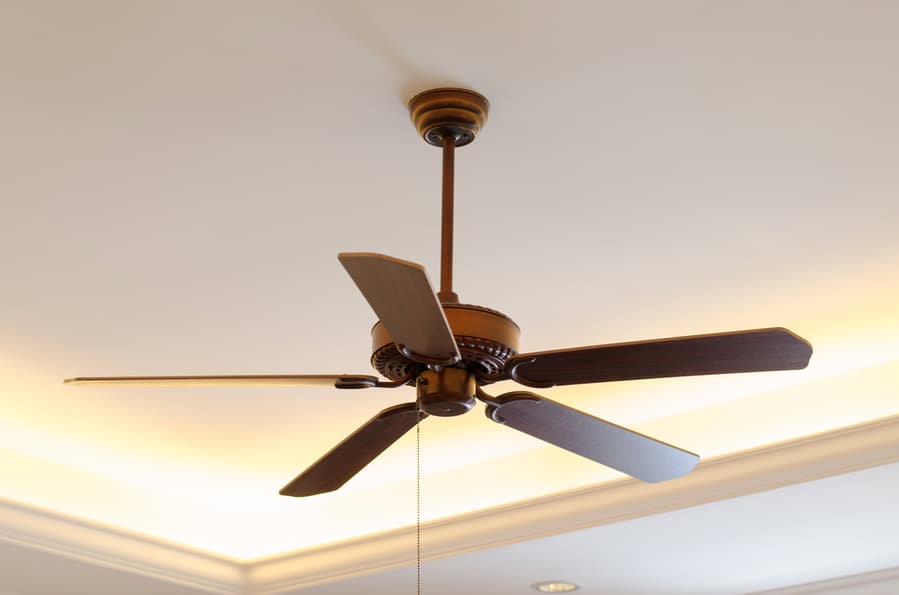
Low-quality fans are made of poor products and have poor design meaning they are more likely to overheat because some parts cannot rotate smoothly, and the motor is prone to stress.
High-quality fans are made of better materials and carefully designed to ensure fan blades run smoothly for a long time.
5. Type of Your Ceiling Fan
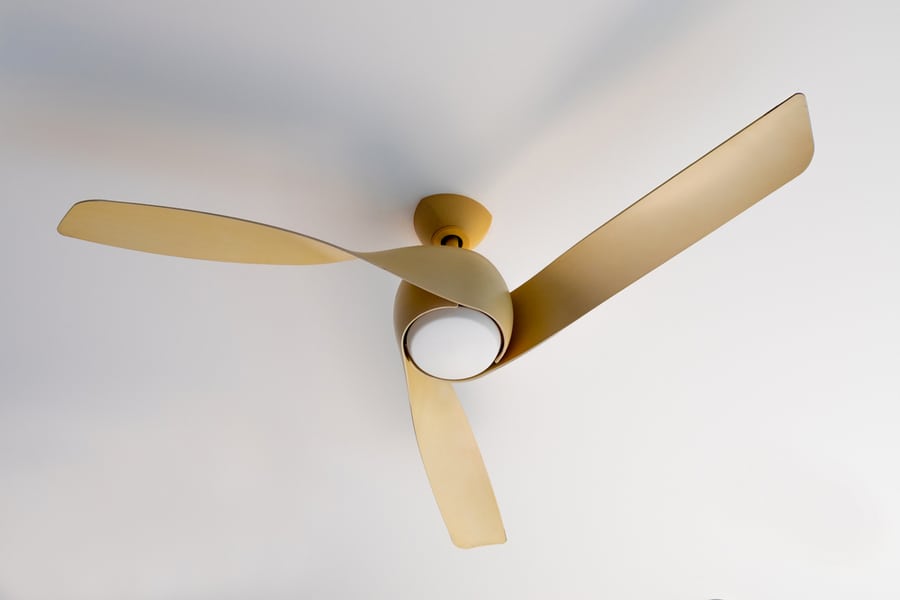
Your ceiling fan can be an AC or DC. Ac fans produce a lot of heat when running. However, they dissipate the heat around the room and reduce the heat on the motor.
The longer you leave your AC fan, the more heat it produces and the less effective it becomes. As a result, the motor overheats.
A DC motor uses less electricity to rotate fan blades. It has a permanent magnet system that rotates the rotor, reducing the motor’s work per revolution.
Signs of an Overheating Ceiling Fan
1. Too Hot To Touch
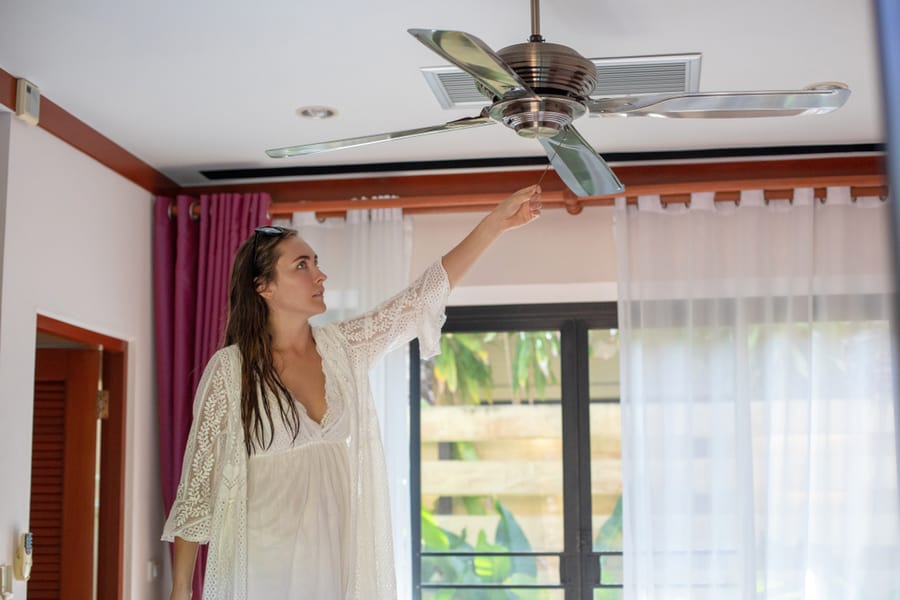
Feeling the ceiling fan is a way to check if the fan’s motor is overheating. Sometimes the motor can get hot.
However, if it gets abnormally hot, especially if the fan has odd noise and smell and the speed is malfunctioning, your ceiling fan is overheating.
2. Persistent Smell
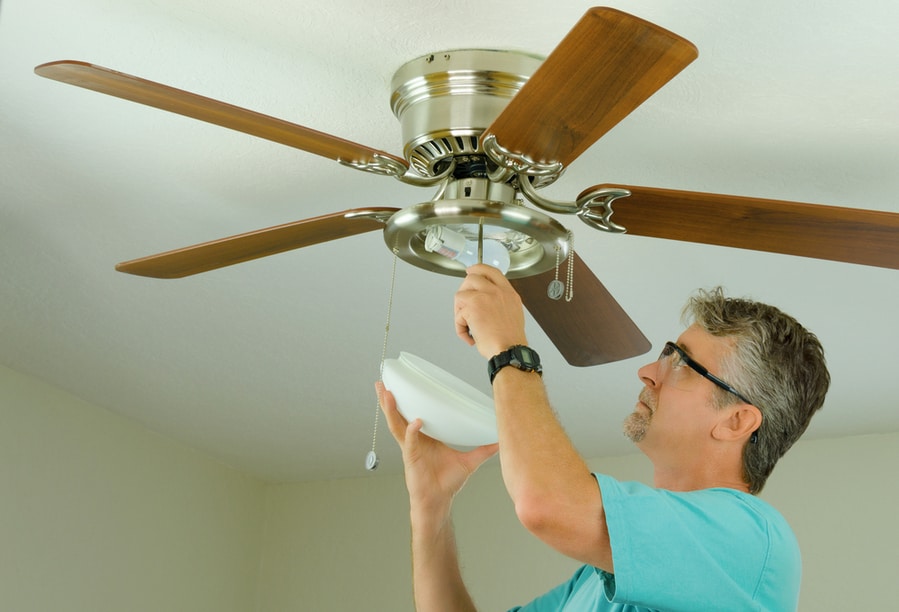
A new ceiling fan can have a smell. However, a smoky smell indicates your ceiling fan is overheating.
Conclusion
Most people think leaving a ceiling fan running for a long time can cause a fire. However, it is not true because the heat is dissipated into the atmosphere and dissolves.
Several factors determine the duration you can leave your ceiling fan to run continuously. That is, its ages, quality, speed, and type.
Leaving your ceiling fan running for a long time makes the motor consume a lot of power to maintain its speed, causing it to produce a lot of heat.
There are ways you can prevent your ceiling fan from overheating, such as cleaning it and assessing its installation.
Frequently Asked Questions
Can I Leave My Ceiling Fan Running 24/7?
Yes. You can leave your ceiling fan running 24/7 without a hitch, but you must attend to it.
Ensure the room has good airflow to avoid getting too hot and affecting your appliance negatively from the dissipated heat that results in overheating.
Also, please do not leave your fan to run 24/7 in a hot room because it does not cool the air but distributes hot and cold air evenly throughout the room.
Can a Ceiling Fan Overheat and Catch Fire?
This is why people believe you should switch off your ceiling fan if you are not using it.
The housing of your ceiling fan becomes hot after running it sometimes due to the generated heat from the running motor.
Leaving your fan to run for a long time causes its temperatures to rise and lose some energy from heat to the surrounding.
The gadget can become too hot, and most people think it can catch fire, but it is not true because the excess heat is released into the atmosphere, and it is difficult for the fan’s temperature to exceed the safe limit.



